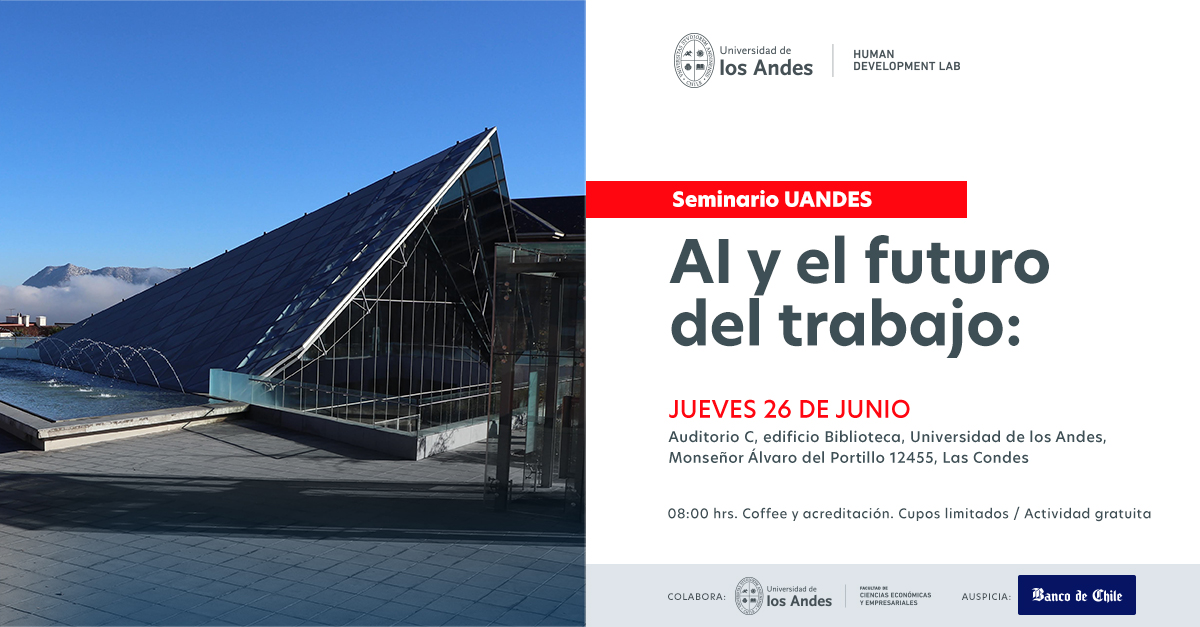
The Human Development Lab hosted the seminar “AI and the Future of Work,” bringing together leading experts to reflect on the current use of artificial intelligence in the workplace and explore its potential impact on education and labor practices in Chile.
The panel featured Yessica Cartajena, Electronics Engineer and Executive Director at Microsoft Chile; Teresita Morán, Founder and Managing Director at BUK; Francisco Rojas, Managing Director of Data & AI at Accenture Chile and Co-Founder of CaimanLabs; and José Miguel Simian, Vice President for Academic Affairs at Universidad de los Andes. The seminar was held at the Biblioteca Building and gathered academics, students, and professionals interested in the future of work.
Yessica Cartajena highlighted how AI is changing the expectations for young professionals entering the workforce. “Thanks to AI, many tasks have been automated. This means graduates must be prepared to take on more strategic roles rather than operational ones,” she explained.
Teresita Morán focused on the transformative role of AI in human resources. “People management is an area that historically involved highly repetitive and manual tasks. Today, AI provides a tremendous opportunity to optimize these processes and generate quick, positive impacts,” she noted. She emphasized the need for HR departments to rethink how they incorporate AI into their workflows to improve efficiency and data analysis.
Francisco Rojas emphasized the value of AI in enhancing business productivity. “AI helps us work with unstructured data, which we can use to build analytical solutions,” he said. He also stressed the importance of ensuring that technology is co-designed with users in mind: “People must be part of the solution for AI to be successfully implemented in organizations.”
José Miguel Simian addressed the broader implications of AI for higher education. “Some professions will be replaced or transformed,” he stated, “and universities must reconsider which careers to offer and how to train students accordingly.” He added that AI is also challenging traditional models of learning assessment, pushing institutions to rethink how they evaluate and certify knowledge in an increasingly digital world.
The panelists agreed on the importance of embracing AI as a powerful tool, while maintaining a critical and ethical approach to its integration in education and the labor market.